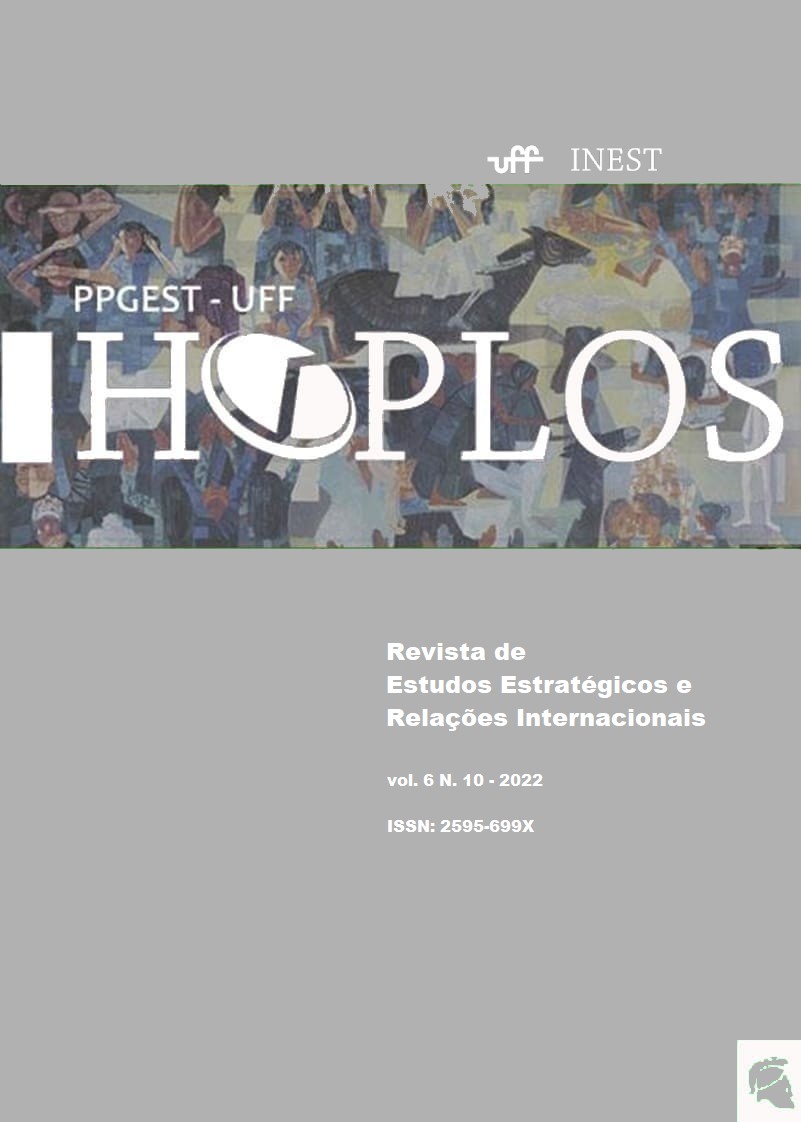A EXPANSÃO DA ECONOMIA-MUNDO EUROPEIA SOB O PRISMA DO ALIMENTO:
O CASO DA GUERRA DOS TRINTA ANOS (1618-1648)
Palavras-chave:
Economia-mundo, Alimento, ; Guerra dos Trinta AnosResumo
A crise financeira de 2008, a pandemia da Covid-19 e a atual guerra na Ucrânia evidenciaram ainda mais a assimetria entre os membros do sistema interestatal moderno, sobretudo na temática da fome, face aos distúrbios provocados por tais calamidades em meio ao comércio internacional de alimentos e insumos agrícolas, marcado por latentes especializações produtivas e relações assimétricas de interdependência. Neste sentido, direcionamos uma investigação histórica à gênese deste sistema desigual de comércio, no que tange ao circuito de alimentos, a fim de compreendermos os mecanismos que pautam esta macroestrutura na longa duração. Nossa hipótese está centrada na compreensão de que as disputas entre as principais potências europeias, durante a fase de consolidação da economia-mundo capitalista, estavam atreladas a um contexto intercontinental no qual o alimento figurou como um dos elementos centrais em meio às posições de privilégio nesta estrutura. Ao longo da pesquisa, de caráter qualitativo-dedutiva, demonstramos que a disputa interestatal europeia engendrou uma economia-mundo, fortificada quando da cessação da Guerra dos Trinta Anos, na qual a fome e a bonança passaram a estar paulatinamente atreladas à dimensão político-social da relação entre humanidade e natureza, sob o prisma da inserção heterogênea na divisão do trabalho em escala global.
Downloads
Referências
ALFANI, Guido; GRÁDA, Cormac Ó (eds.). Famine in European History. Cambridge:
Cambridge University Press, 2017.
ALFANI, Guido; GRÁDA, Cormac Ó. The Timing and Causes of Famines in Europe. Nature
Sustainability; v. 1, p. 283-288, 2018.
ARRIGHI, Giovanni. The Long Twentieth Century: Money, Power and the Origins of Our
Times. London & New York: Verso, 2010.
Downloads
Publicado
Edição
Seção
Licença
Copyright (c) 2022 Gabriel Victor Silva Paes

Este trabalho está licenciado sob uma licença Creative Commons Attribution-NonCommercial-ShareAlike 4.0 International License.
1. PROPOSTA DE POLÍTICA PARA PERIÓDICOS DE ACESSO LIVRE
Autores que publicam nesta revista concordam com os seguintes termos:
a. Autores mantém os direitos autorais e concedem à revista o direito de primeira publicação, com o trabalho simultaneamente licenciado sob a Licença Internacional Creative Commons Attribution - Share Alike 4.0 que permite o compartilhamento do trabalho com reconhecimento da autoria e publicação inicial nesta revista.
b. Autores têm autorização para assumir contratos adicionais separadamente, para distribuição não-exclusiva da versão do trabalho publicada nesta revista (ex.: publicar em repositório institucional ou como capítulo de livro), com reconhecimento de autoria e publicação inicial nesta revista.
c. Autores têm permissão e são estimulados a publicar e distribuir seu trabalho online (ex.: em repositórios institucionais ou na sua página pessoal) a qualquer ponto antes ou durante o processo editorial, já que isso pode gerar alterações produtivas, bem como aumentar o impacto e a citação do trabalho publicado (Veja O Efeito do Acesso Livre).






